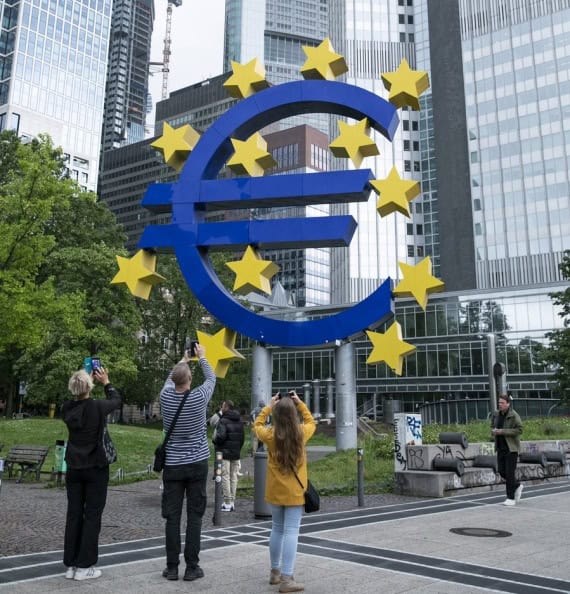Photo: Xinhua/Zhang Fan
BRUSSELS, Nov. 27 (Xinhua) -- Lagarde told the European Parliament that the eurozone has been experiencing economic stagnation in recent quarters, which she attributed to factors such as higher interest rates and weak external demand. Economic activity in the euro area has stagnated in recent quarters and is expected to remain weak for the rest of the year, European Central Bank (ECB) President Christine Lagarde told the European Parliament on Monday.
Lagarde attributed the slight decline in eurozone real gross domestic product (GDP) in the third quarter to a combination of factors, including "the widening impact of higher interest rates, weak external demand and the waning momentum from the reopening of the economy after the pandemic".
However, she expressed optimism about the bloc's economic recovery in the coming years, citing a further decline in inflation, a recovery in household incomes and growing demand in the area. On inflation, Lagarde acknowledged that wages will continue to play a key role in boosting domestic inflation.
Although she expects the easing of inflationary pressures to continue, "the medium-term inflation outlook remains surrounded by considerable uncertainty", she said. On monetary policy, Lagarde confirmed that the ECB's future interest rates will be set at "sufficiently restrictive levels for as long as necessary" to meet its goal of bringing inflation down to 2 %.
"The appropriate level and duration of the restriction will continue to be determined depending on the data, assessing the inflation outlook, the dynamics of underlying inflation and the strength of monetary policy transmission," she said. The ECB will ensure price stability and support the green transition of the euro area economy, Lagarde noted.
Xinhua/JaV



